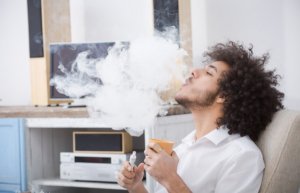 Over the past decade the nation’s views toward smoking have changed immeasurably; the introduction of legislation in 2007 prohibiting smoking from enclosed public spaces such as offices, pubs, restaurants and transport stations has contributed to a drop of 1.9 million smokers in the UK and smoking rates being at their lowest since records began.
Over the past decade the nation’s views toward smoking have changed immeasurably; the introduction of legislation in 2007 prohibiting smoking from enclosed public spaces such as offices, pubs, restaurants and transport stations has contributed to a drop of 1.9 million smokers in the UK and smoking rates being at their lowest since records began.
However, not all of these smokers will have kicked the habit completely with many instead turning toward e-cigarettes and ‘vaping’. A recent national survey found that there are now 2.9 million vapers in England. So what is vaping and are there any risks for your holiday home?
How does vaping work?
The average e-cigarette is made up of a mouthpiece, a cartridge or tank to hold the liquid (often known as ‘e-juice’), a heating element or atomizer to heat the liquid and a battery to power it. The concept is that flavoured liquid within the cartridge is heated to a temperature at which vapour is produced. This is usually between 100 – 250c. It is this vapour that the user inhales.
Are there fire risks for your holiday home?
Traditional smoking is also one of the main causes of accidental fires around the home. Figures produced by Fire Protection Online show that in 2008 there were around 2,800 fires in the UK caused by smokers’ materials and they accounted for more than a third of fire deaths in non-domestic buildings in 2013–14, making it the most common cause.
So where do e-cigarettes stand in comparison? Fires related to vaping have increased significantly over recent years, rising from only eight in 2012 to 62 during 2014 and accounting for two fatalities.
Experts are mainly concerned about the chargers used to power the devices, which have been shown to heat up to dangerous temperatures if used with the wrong ‘vaping’ kit. In response the fire services have created a number of safety tips for users:
- Only use the charger supplied with your e-cigarette kit – other chargers may cause problems with incompatible battery types.
- Do not ‘mix and match’ components between kits.
- Do not over tighten the battery on to the charger – screw the battery in gently after plugging in the charger first.
- Never leave the kit unattended while charging.
- Clean the battery’s ‘centre pin’ and charger contact at least once a week.
- Once fully charged, removed the battery from the charger.
Communicating your vaping policy to guests
If you don’t allow vaping in your holiday home, it’s important you communicate this to your guests. Whilst people will often be used to seeing no-smoking signs or this being listed on promotional literature, people can often think that vaping falls outside of these parameters as there isn’t actually any ‘smoke’.
Make sure that it’s clear whether or not vaping is allowed within your holiday home, for example:
- on your website
- in your booking information
- in your welcome pack
This will ensure that there’s no confusion over your policy and help prevent negative feedback and guest complaints.
Boshers offer specialist holiday home insurance to owners across the UK. For information on how we can help and support your holiday home business call us on 01237 429444.

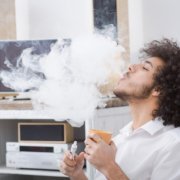
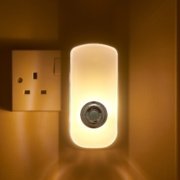
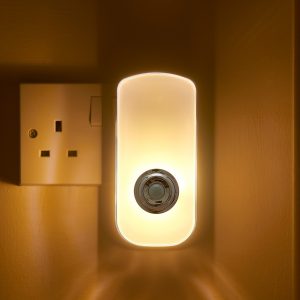 As the nights get longer the weather is often more unpredictable and the risk of powercuts increase. Emergency lighting in its basic form can be cost efficient and will ensure your
As the nights get longer the weather is often more unpredictable and the risk of powercuts increase. Emergency lighting in its basic form can be cost efficient and will ensure your 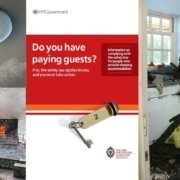
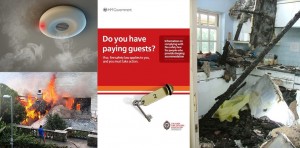 There are many different ways in which a fire could start in your holiday home. Having an understanding of the risks that fire poses to your property and your guests is vital to ensuring a safe stay in your cottage and complying with Fire Safety Law for Holiday Letting.
There are many different ways in which a fire could start in your holiday home. Having an understanding of the risks that fire poses to your property and your guests is vital to ensuring a safe stay in your cottage and complying with Fire Safety Law for Holiday Letting.